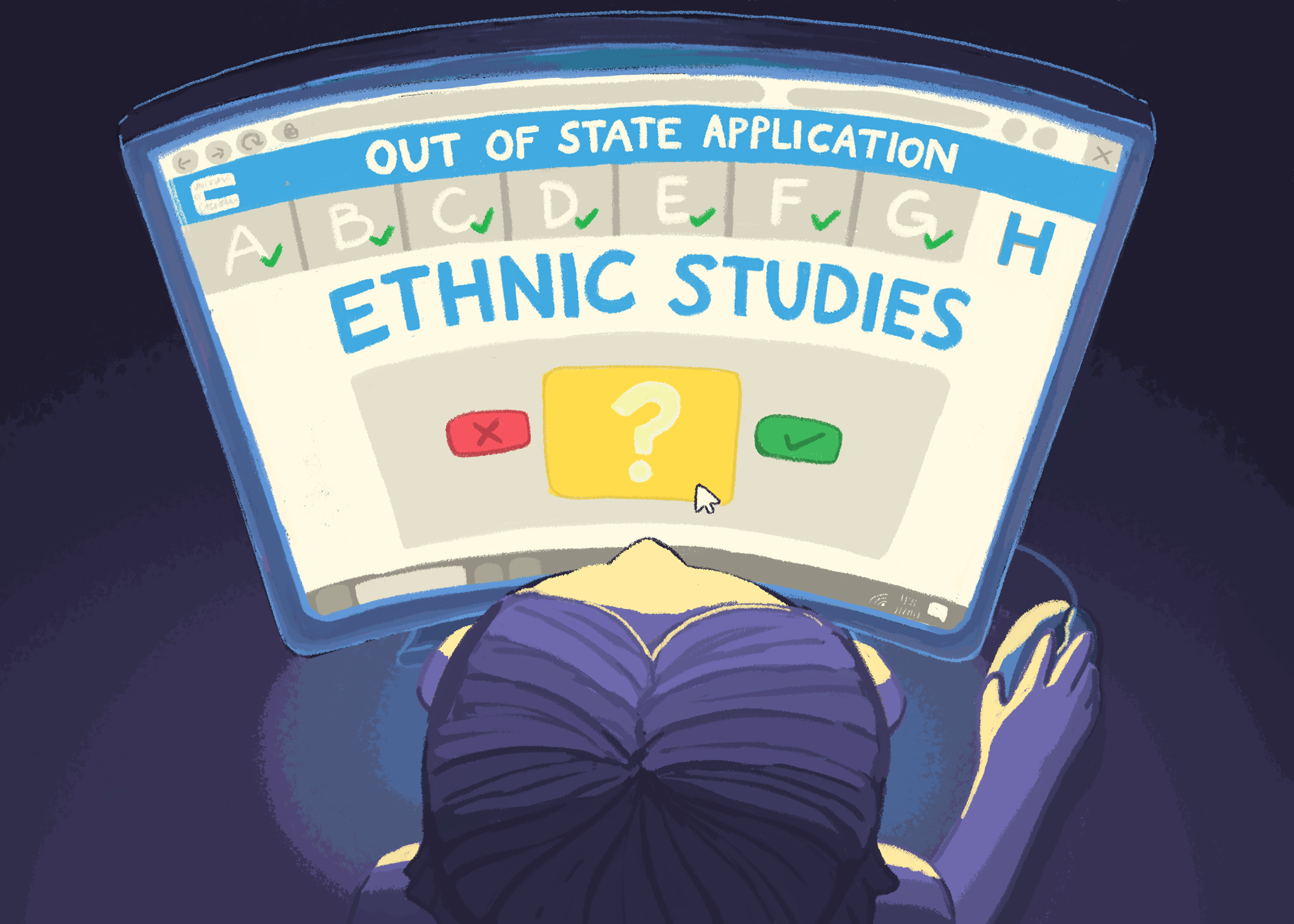Opinion: Should vocal communication become the next UCLA general education requirement?

(Amber Lee/Daily Bruin)
By Laura Gulbinas
Feb. 12, 2023 10:28 p.m.
From phone calls with friends and family to academic presentations and interviews for prospective careers, vocal communication is a critical skill to learn in our personal and professional lives.
At UCLA, we expect to be equipped with all the resources needed to succeed in our future academic and career endeavors. However, despite the wide range of courses that fulfill various requirements and broaden our academic experience, there are less than a handful that focus specifically on vocal communication.
It is imperative that UCLA not only offers but also requires students to take a class focused on verbal communication because of its significance in students’ undergraduate experience and beyond.
The ability to participate in discourse through vocal contribution and public speaking are highly necessary skills far beyond the college environment. As a school dedicated to preparing students for their respective vocations, UCLA must add a speaking requirement to its general education requirements.
Browsing the course catalog, there is a notably limited amount of public speaking courses. For undergraduate Bruins, the only classes that offer any indication of a focus on speech are a few communication classes, English as a second language and theater arts classes. Although speech is particularly helpful in these subjects, students in all fields would benefit from a speech requirement.
Currently, there are two writing requirements, Writing I and II, that aim to improve student writing in and out of the classroom setting. Although writing is an important feature of academia and the professional world, public speaking is also an important skill that is essential for students to learn to receive the extensive education advertised to them.
However, it is plausible that the implementation of an additional requirement would present some difficulties for graduation timelines. Students are often only able to take required courses for their major to graduate on time, making the addition of a further requirement another burden on an already rigorous curriculum.
Katerina Van Glabbeek, a second-year undeclared student, said she was hesitant about adding another requirement to her already heavy workload while still having to take general education courses.
“There are so many other classes that I would like to take – GEs for example,” Van Glabbeek said. “I would feel pressure to take a different class that was part of my major.”
Leslie Sherwood, a faculty member for Writing Programs, said in an emailed statement that there are ways to address this concern.
“Perhaps the requirement could be embedded into existing courses like the diversity requirement (that) was implemented,” Sherwood said in the emailed statement. “Classes that do foster oral skills, like designing and delivering presentations, participating in group tasks, and leading course discussions, could be marked as fulfilling that requirement, thus not burdening students with additional classes for graduation.”
Although student reluctance to participate in such courses might persist, some students may willingly seek out opportunities to practice public speaking or interviewing.
“Personally, I still struggle with interview questions, and having a class like that, I feel, would just be beneficial overall, because we’re all eventually gonna have to be prepared for interviews,” said third-year political science student Eliza Huang.
Van Glabbeek also said she would be willing to add such classes to her curriculum, provided that they are optional and hold lower stakes.
“I think it would be a fabulous Fiat Lux or a two-unit class,” Van Glabbeek said. “I would definitely take it.”
Although Huang and Van Glabbeek said they shared an enthusiasm for optional verbal communication classes, many students may dread such courses – perhaps making the requirement that much more necessary to teach these skills.
Following Sherwood’s solution, UCLA should introduce a verbal communication component into any GEs that allow for it but not burden students with a separate additional course.
As the No. 1 public university in the nation, UCLA must use its various resources to implement a vocal communication requirement to set students up for future success.




